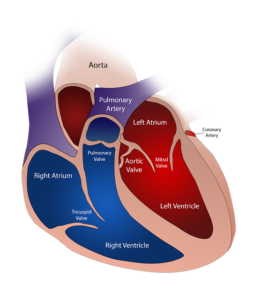Causes of chronic hyperventilation

This article was written by Ph. D. B. Snitslaar, neurologist, in the 80’s associated with the Phobias project of the Department of Personality Studies of the sub faculty of Psychology at the University of Amsterdam. Later he was employed by the Common Medical Service, Research and Development department, Research section. Although many medical terms are used in this article, it can still provide good background information. Even if you are not a medical doctor and are interested in more accurate information about chronic hyperventilation syndrome, the medical articles on this site may be of interest to you.
A lot has been written about the causes of chronic hyperventilation and little is definitely clear yet. The temptation is great to consider the disorder as a psychosomatic illness. Analogous to, for example, the duodenal ulcer and a form of arterial hypertension. People with a certain ‘characterological predisposition’ will breathe more under favorable circumstances than physiologically necessary.
Other factors that can be causes of chronic hyperventilation
Over the last few years it has become probable that other than psycho-social factors can contribute to chronic hyperventilation syndrome. Once the image is there, it can not be distinguished from the ‘purely psycho-social’ syndrome.
For example, inhalation smoking of many cigarettes can be regarded as a form of hyperventilation per se. This can result in the development of the chronic hyperventilation syndrome with all the symptoms.
Caffeïsm

Caffeine, a xanthine derivative, activates the respiratory center to great activity. Among other things, causes are excessive use of coffee, Coca-Cola, tea, chocolate milk (theobromy) and Chefarine-4. Recently, this has received a lot of attention in the literature. This is called caffeism. It appears that
the symptoms turn out to be exactly the same as with the ‘normal’ hyperventilation syndrome.
Mitralis valve Prolapse
Furthermore, in a large percentage of patients with complaints and symptoms such as we know from the syndrome of chronic hyperventilation, there appears to be mitral valve prolapse. This slight anomaly can easily be diagnosed by a specialist through physical diagnosis and echo-cardiography. Often it appears to go along with the ‘hyperdynamic-beta-adrenergic state’.

 psychological profile
psychological profile treatment chronic hyperventilation
treatment chronic hyperventilation